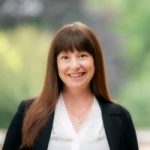[1] As we deal with the high levels of anxiety and depression in our congregations, we might consider a collective re-visitation of the concept of vocation. To those of us who are academics, pastors, and laity, I ask: what resources do we have from our own fields of expertise to re-invigorate our understanding of our human vocation with fresh perspectives that make it a concept that can work for the world, the societies and the communities we actually live in today?
[2] For the theologians of the Protestant Reformation, especially Martin Luther, vocation was a response to the “disenchantment” of world that was creeping in with the rise of modernity. They sought to make more rather than less of human life into ways to serve God and neighbor. This is what the “priesthood of all believers” meant. The plumber’s vocation was as important as that of the priest, because the plumber was also serving their neighbor, and through serving their neighbor, the plumber was serving God. The father was doing his vocation when he changed a diaper as much as a priest was serving God when administering the Eucharist.
[3] In recent decades, however–at least in the U.S. context with which I am most familiar–vocation has become intertwined with self-actualization (listening to the authentic self). With this sense of vocation comes a heroic sense of a purposeful life that places enormous burdens on the self. Too often the professionalized vocations that seem to “count” pull people toward service or caring professions which require high levels of education (and, in many cases, student debt) in exchange for relatively low pay. Parenting, caretaking, and community service are, of course, also vocations, but these can realistically only be pursued full-time if another working adult is supporting the household. Thus, many of those who can find paid work for this kind of vocation are most likely those in the relatively elite class or are those wondering how long they can afford to pursue what they understand to be their vocation.
[4] Let me be clear: none of this is Luther’s fault. But I do think we need to be honest about the ways the world is changing, about our anxieties, frustrations, and fears and how they shape our sense of service to neighbor. I also think we would benefit from frank talk about the ways in which vocation has been sucked into the powerful streams of professionalization (that vocation is on the other side of education and is synonymous with gainful employment), workism (you are defined by your work—and this isn’t a 9-to-5, this is your vocation), and privilege (…if you’re lucky). We may know intellectually that our vocations are multiple and dynamic and our discernment is perennial, but most folks I talk to about this understand their vocation to be their primary (paid, professional) work.
[5] In sum, I do not suspect that the problem(s) lie within the concept of vocation itself, but rather in social structures and in the ways we have allowed this life-affirming concept to be co-opted. What is there of value that remains? How then shall we live into our callings? And how then can we reimagine vocation for the 21st century in a way that is more sustainable, malleable, and healthy?
[6] Discussion/Reflection Questions:
- What were the notions of vocation that you came into adulthood or your professional life with?
- How have those served you? How have they not served you?
- What realities did they prepare you to manage well? What realities did they not consider or not prepare you for?
- What resources do you find in Scripture, history, theology, (or elsewhere) to help you think about this in a fresh way?
- How do you need to reimagine vocation for yourself?
- How can you reimagine what it might mean for the next generation?
- Who will be your conversation partners in this reflection?


